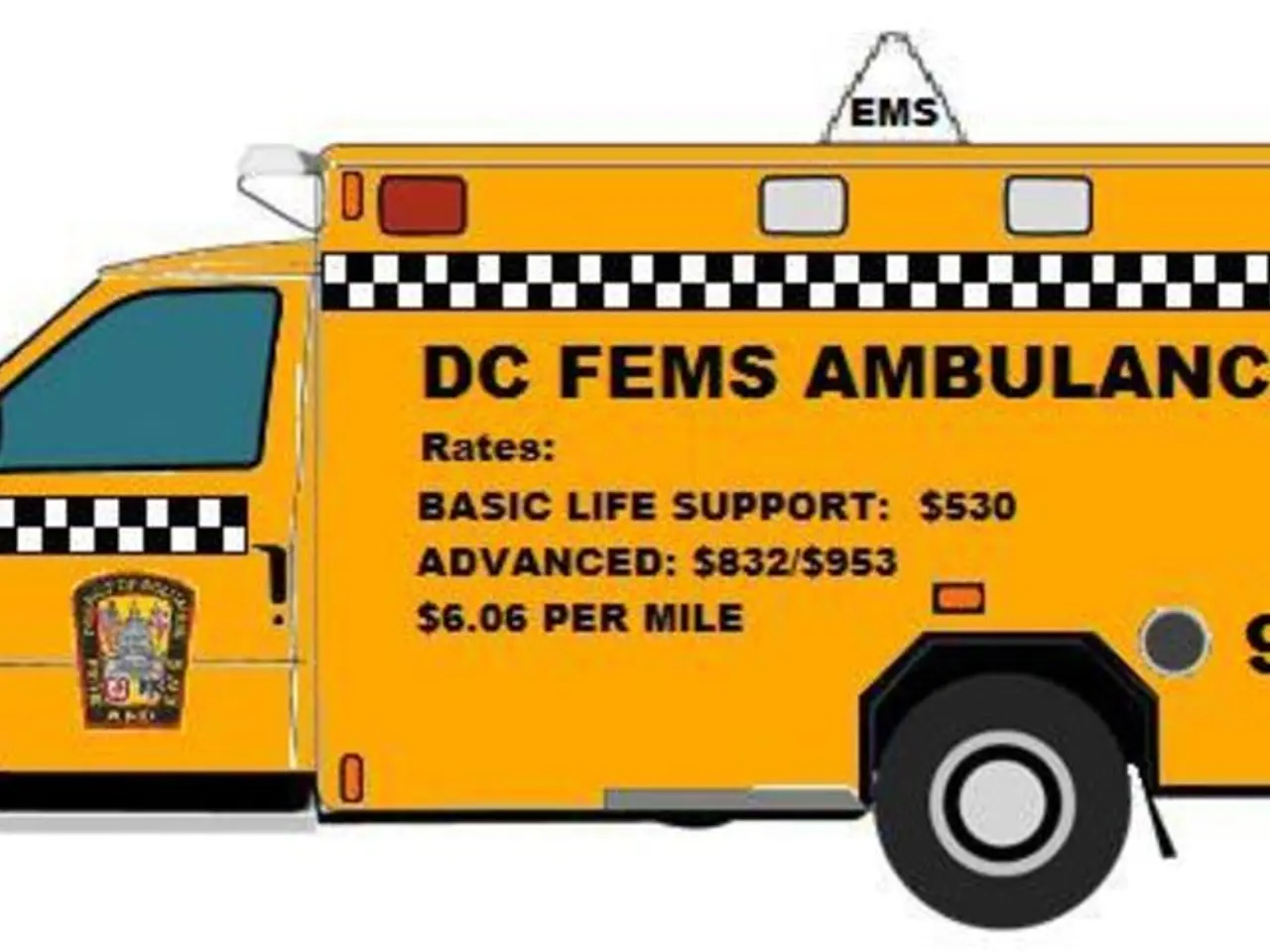Lifesaving Mobile Application: Potentially Saving Your Life
"Saving Lives, One Call Away."
In the heart of Austria, Vienna's Emergency Services receive calls that could change lives in an instant. "Vienna Emergency Services. Where is the emergency location?" The urgency in a voice, "My wife is not breathing, please come quickly!" Such calls often mark the start of a cardiac arrest situation.
A chilling statistic by Mario Krammel, Chief Physician of Vienna's Emergency Services and the managing president of the Puls Association, suggests that a cardiac arrest could affect "every individual" at some point in their lifetime.
Unbeknownst to many, it's often not professional paramedics who are the first responders in such emergencies, but everyday heroes. Known as "lifesavers," these people receive alerts through a smartphone app when a cardiac arrest is suspected during an emergency call. Similar projects operate in various federal states. In 2024 alone, this network of volunteers in Austria received over 2,500 alerts.
Time is of the Essence
Approximately 8,000 "lifesavers" are registered in Vienna, ready to take action when needed. When a suspected cardiac arrest triggers an emergency call, the control center immediately notifies nearby lifesavers within a radius of roughly 400 meters. Meanwhile, teams from the emergency services, police, and fire department, all equipped with defibrillators, are dispatched.
For Krammel, the first two lifesavers are dispatched for chest compressions, and others might be directed to the nearest public defibrillator. "Every minute without assistance causes the probability of survival to drop by about ten percent," Krammel notes.
Anyone Can Be a "Lifesaver"
The system hinges on volunteer work. Any person with the inclination and willingness to help can join - registration with the Puls Association requires a brief six-hour first aid course, similar to the one required for a driver's license, and a self-declaration.
There are close to 1,000 defibrillators available in Vienna, with 300 accessible 24/7. However, lifesavers are not required to be on call all the time; they can accept or decline a mission with a single click, without providing reasons.
Many Hands, One Goal
The goal of the Puls Association is to ensure a qualified first aider arrives within the first seven minutes of a cardiac arrest incident. This is difficult to achieve with the current emergency services system alone. That's where mobile first aiders like the lifesavers come in, providing crucial basic life support like CPR until professional help arrives.
The Puls Association offers a comprehensive guide to cardiopulmonary resuscitation (CPR) for laypeople, enabling anyone to perform an effective CPR and save lives. If a person, like a young child, is present yet unable to administer CPR for various reasons, these mobile first aiders play a vital role in shortening the "No-Flow time" (the time during which the circulatory system isn't pumping blood).
However, Krammel emphasizes, "lifesavers" should not replace the professional emergency services.
There's nothing you can do wrong. The only thing you can do wrong is if you do nothing. If someone is lying there not moving, not breathing or not breathing normally, then you have to do three simple things: call, press, shock!
by Mario Krammel
In conversation with our website
The quick help offered by systems such as "Lifesavers" (civilians) or "First Responders" (emergency personnel) has shown promising results. According to Krammel, the survival rate for cardiac arrest outside of hospitals in Vienna increased from 29 to 39 percent from 2015 to 2025.
- The science of saving lives might require more than just professional paramedics, as everyday individuals, known as 'lifesavers', are an essential part of the process.
- Accelerating the response time to chronic diseases, such as those resulting from a cardiac arrest, becomes crucial in improving 'health-and-wellness'.
- In the quest for better 'health-and-wellness', the Puls Association, led by Chief Physician Mario Krammel, advocates for increased public access to first aid knowledge to make more people potential 'lifesavers'.
- To promote 'fitness-and-exercise' and mental well-being, nutritional education and the importance of early intervention in cases of respiratory conditions are highlighted by Krammel.
- In light of the apparent benefits of CBD oils and other supplements for mental health, discussions are emerging on the potential integration of CBD into a holistic approach to emergency services and response.








